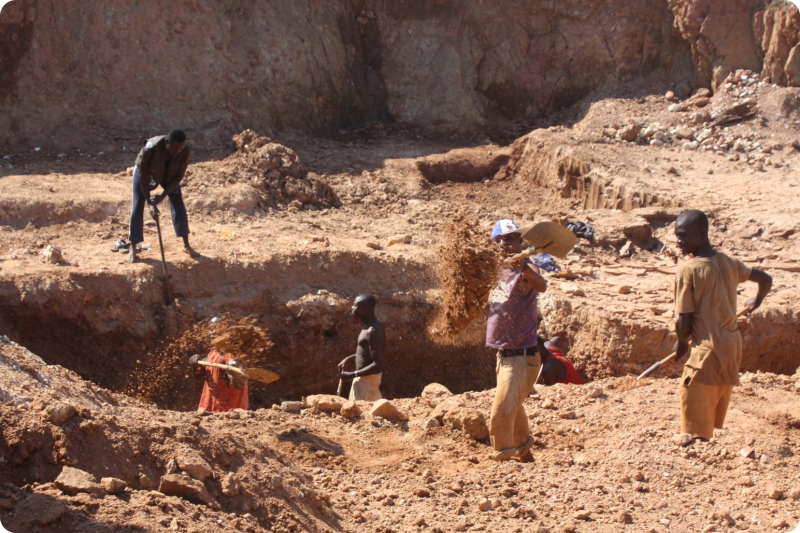
ENVIRONMENTAL protection activities and action plans have become a cause for concern for artisan miners and some small-scale miners alike. The largely unregulated mining activities taking place throughout the country have left footprints of destruction, including plunder of the physical features, siltation of life-lines like streams, rivers and dams.
guest column: Peter Makwanya
If large-scale mining concerns are failing to implement simple and sustainable mining procedures, then what more do we expect from the unskilled, ill-resourced and under-equipped, so called artisan miners. This is in the public domain, coupled with the magnitude of violence and disregard of human rights currently prevailing in the underworld of the dog-eat-dog artisan mining activities.
These people were once called Makorokoza, but the authorities, in attempts to sanitise this dangerous and unruly stable, changed the name to artisanal miners. But the change of name did not come with change of behaviour, as the artisanal miners are still raw, uncouth and violent as ever. It is also in the public domain that human rights abuses are still prevalent in this community. Their mining activities are a no-go-area for those who cannot support their spine. The rules and regulations prevalent in large scale mining concerns do not exist in the artisanal mining world, who have become notorious for machete-wielding and using laws of the jungle.
The magnitude of the environmental damage that has been inflicted on natural resources is quite disturbing, and with long term effects and consequences as well. It is the environment that has suffered more than anything else and no one seems to care enough. It is also regrettable that there are organisations purporting to represent small-scale miners, artisan miners included. These organisations always try to put a human face despite the chaotic scenes unfolding in artisan mining practices. Surprisingly, we have not heard these organisations condemning the conduct and the operations of their members. Human rights abuses in these sectors need to be addressed, while the environmental damage taking place in the underworld of the artisan mining, requires education and awareness. Of course, lives have been lost and violent conflicts often erupt amongst the rival gangs, with police often called in to diffuse tensions, amid minimum success.
The issues of carbon emissions, through the unlocking of carbon stocks by destroying forests and landscapes, without land-filling or forest regeneration, have become an environmental eye-sore.
This cancer of the environment requires collective efforts so that a sense of stewardship is instilled. A number of streams have since gone dry, contributing to water scarcities, while the destruction of forests is gradually contributing to desertification. The empty pits, gullies and holes have unlocked emissions into the skies and they have also become death traps for livestock and wild animals, not mentioning the destruction of the ecological balance of nature.
Artisan miners have not factored in how their mining activities have affected the health well-being of the surrounding communities and even their own health (artisanal miners) as well. What they are interested in are end products, but do not care much about the means. In the end, we would simply ask if ends justify the means?
- Chamisa under fire over US$120K donation
- Mavhunga puts DeMbare into Chibuku quarterfinals
- Pension funds bet on Cabora Bassa oilfields
- Councils defy govt fire tender directive
Keep Reading
In this regard, the responsible authorities should educate and train members of their communities about the policies and regulations, which would, in future, afford proper mining practices to continue.
If they continue to destroy the environment, which stores the treasures they like so dearly, then in future, there won’t be any environment or worse still, any minerals to talk about.
In this regard, the artisanal mining activities lack education, cohesion, accountability, consistency and character modification. These are all violations of mining ethical codes of conduct, including issues of safety, which nurture the sanctity of human lives.
It is not a secret that artisan miners, as the authorities would want us to call them, have become, law unto themselves, untouchable and warlords in the making. This is not something pleasant to hear in an organised society like ours. Measures should be taken to bring these people back into a normal society. Artisan miners’ behavioural attributes have been sanitised, just the way kombi drivers have been made to look normal.
Even their working conditions continue to be dangerous, despite calling them artisanal miners. Authorities in the mining sector should help their counterparts and improve their working conditions as well as enable them to have a sense of environmental conservation so that they contribute to sustainable mining practices.
Above all, issues of the health well-being of the surrounding communities have not been sufficiently addressed as these households have been suffering and enduring silently from noise pollution, dust, mining fumes and mining wastes.
One wonders what kind of environment we are creating for our children and also in the eyes of the children. How many times have we failed to behave like true environmental stewards?
What lessons are we teaching our children so that they stop wondering what kind of people, as human kind, we are?
Peter Makwanya is a climate change communicator. He writes in his capacity and can be contacted on: [email protected]











